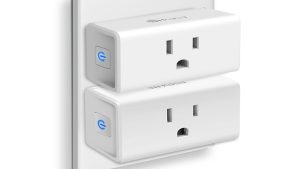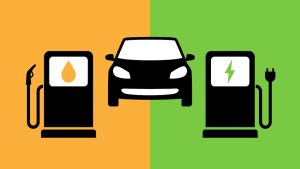Elon Musk’s DOGE: a data breach?
Many people right now have an option on Elon Musk. And boy are they weighing in on Elon Musk’s DOGE activities! Most people agree that it’s a problem that no one elected or approved the appointment of Elon Musk, or his DOGE department. As a result, does that constitutes a breach? Also, by allowing them to see federal information, military data, and full access to private info, are we asking for trouble? The Government is giving Elon Musk and his DOGE workers the right to break privacy laws and breach our data. So how do I feel about it?
Personal Perspective on Elon Musk’s DOGE
I have student loans, and I submit a tax return every year, and I know that I never gave permission to any NON-Government person or organization. I personally always try use strong passwords, VPN encryption, and other technology to keep my sites and data safe. And since I didn’t vote to allow them access to my personal data, then ultimately, I think we are seeing a data breach. Anytime that personal information is exposed, it is a risk. That info is viewed by someone who is not authorized. So In my opinion, Elon Musk’s DOGE has committed fraud. My data is being breached, as well as everyone else’s. And I wonder, at what cost?
In today’s world, everything’s online—our photos, passwords, credit cards, even our fridge settings. But with great connectivity comes great responsibility. If you’re asking “What can I do to protect my data online?”—you’re already on the right track.
So What Can I Do?
Here are some tips for keeping personal info safe in the digital jungle:
1. Use Strong, Unique Passwords
I know – it’s tempting to use “Password123” for everything. But don’t. Use long, unpredictable passwords with a mix of letters, numbers, and symbols. Better yet, use a password manager to generate and remember them for you.
2. Turn On Two-Factor Authentication (2FA)
2FA requires a second form of verification (like a text or app code) when logging in. So even if someone steals your password, they can’t get in without that second step.
3. Keep Software Up to Date
Your phone, browser, your apps – they get updates for a reason: security patches. Don’t ignore those update reminders. Also, they often fix vulnerabilities hackers are actively trying to exploit.
4. Watch for Phishing Scams
If an email or text seems sketchy—don’t click. Because phishing messages try to trick you into handing over your login info or downloading malware. And ALWAYS, double check the sender and never log in through suspicious links.
5. Use Secure Wi-Fi (or a VPN)
Avoid logging into important accounts on public Wi-Fi (like at coffee shops or airports). But if you must, use a VPN (Virtual Private Network) to encrypt your connection and hide your data from snoopers.
6. Review App Permissions
Check which apps have access to your camera, mic, contacts, and location. If something doesn’t need access—revoke it. So remember, on phones and smart devices, less is more.
7. Back Up Your Data
If the worst happens, you’ll be glad you had a backup. Use a secure cloud backup or an encrypted external drive and back things up regularly.
You don’t have to be a tech expert to take your digital safety seriously and save yourself from Identity theft.
What Do You Think?
Since personal information has been viewed, and possibly leaked by a private citizen who accessed government servers, I think we will see a flood of class action lawsuits and litigation over all this. Will the Government shut it down? Are we prepared to protect our identity, privacy, and financial information? I guess we can wait and see. I know I can vote to change the situations that I disagree with, but can we last that long? What do you think? Is Elon Musk’s DOGE a data breach or a necessary risk? What do you do to protect your data? Do you have a plan in place to prevent Identity Theft? Comment and discuss this with me!







